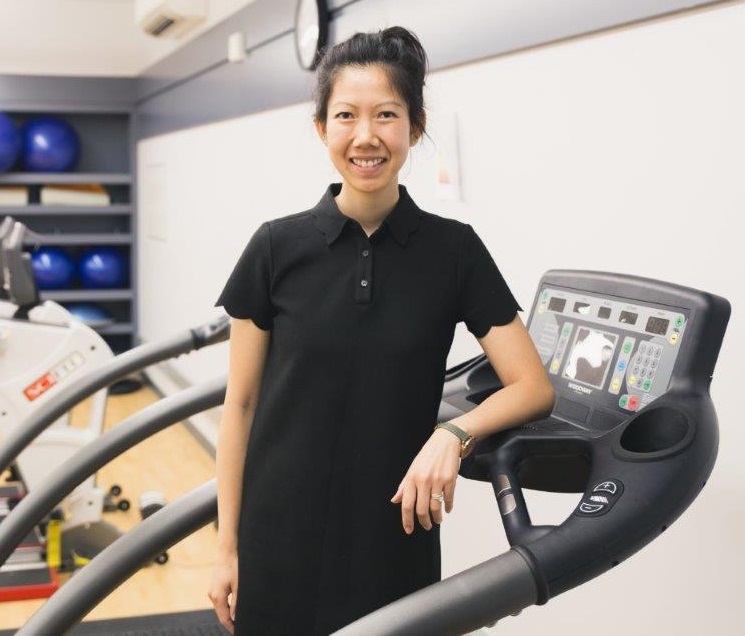
Fall 2024
Editor's Note

This issue of Outlook is all about bite-sized advice from our fellow members. Get words of wisdom on the following topics: the mentor/mentee relationship, navigating conflicting health information, designing better behavior change interventions, and high-impact research directions in the areas of pain, spirituality and health, and psychosocial stress and cardiovascular risk, as well as how to communicate your science to the public.
From Rising Temperatures to Rising Threats: Confronting Climate-Induced Violence Against Women and Girls

While nations such as Afghanistan, Malawi, and Iran grapple with catastrophic flooding and others confront cold snaps, disease outbreaks, and extreme weather events, a critical yet often overlooked issue lurks: the rise of violence against women and girls in climate-impacted settings. From the makeshift shelters of climate refugees to the homes of those struggling to rebuild after disaster, women and girls disproportionately bear the brunt of both the environmental and social upheaval that follows climate-induced disasters.
Navigating the Landscape of Conflicting Health Information: The Paradox of Progress

Health guidelines published by respected organizations aim to provide patients and healthcare professionals with valuable information for medical decision-making by offering recommendations for clinical practice. However, with an increase in production of health guidelines from different sources and updates to these guidelines over time, a significant issue has emerged – conflict in the health information they present.
Spotlight on Integrative Health and Spirituality SIG's 2024 Distinguished Scientist Award Recipient: Dr. Kevin Masters

Dr. Masters is a Professor of Psychology at the University of Colorado Denver, where he is the Director of the Cardiovascular and Life Meaning (CaLM) lab. In recognition of his impressive work in the field of spirituality and health, Dr. Masters was awarded one of the 2024 Integrative Health and Spirituality (IHS) SIG’s Distinguished Scientist Award.
Mentorability: A Neglected But Key Part Of Success

When we consider the important components of the mentorship experience, we focus on practices of mentors. Historically, there has been very little attention paid to the mentee’s role in the mentorship experience. In fact, a recent examination of post-secondary mentoring program websites in one state and found that programs were four times more likely to address mentors than mentees.
Designing Better Behavior Change Interventions: A Case Study on Selecting Components with Dr. Susan Brown

The Society of Behavioral Medicine’s Optimization of Behavioral and Biobehavioral Interventions Special Interest Group (OBBI SIG) recently interviewed Susan D. Brown, PhD, FSBM, a clinical psychologist and Associate Professor at the University of California, Davis School of Medicine. She walks us through the four components used in her ongoing R01-funded SUNRISE optimization trial (n=2000), which seeks to optimize a brief digital outreach intervention to improve uptake of recommended type 2 diabetes screening for postpartum adults who had gestational diabetes mellitus (GDM) during pregnancy.
Sharing Science to Make Real-World Impact: Available Resources and Ways to Get Involved in Sci Comm at SBM

A lot of science never reaches the public. When it does, it may not be shared in an easy-to-understand, accurate, and actionable way. The notorious 17-year time lag for scientific evidence to impact practice can be partly attributed to breakdowns in science communication (“Sci Comm”). Although many researchers want to share their research results with the public, they may be unsure how to effectively communicate the information.
Psychosocial Stress and Cardiovascular Risk: State of the Science and Areas for Attention

Psychosocial stress is “a real or interpreted threat to the physiological or psychological integrity of an individual that results in physiological and/or behavioral responses.”1 Thus, the term stress may refer to a stimulus, a reaction to a stimulus, or the psychophysiological effects of that response. Stress, especially that which is long-term or chronic, has been associated with the development of cardiovascular disease (CVD),2-4 and this association is consistent across geographic regions, ages, and sexes.5
The Pain Management Collaboratory (PMC) Coordinating Center: An Interview with Co-Director Dr. Robert Kerns

The Pain SIG interviewed Dr. Robert Kerns, a Professor Emeritus and Senior Research Scientist at Yale University and one of the three directors of the Pain Management Collaboratory (PMC) Coordinating Center. We were eager to learn more about the Collaboratory, its mission, and the research it supports.
Angela Bryan Named New Editor-in-Chief of Annals of Behavioral Medicine

University of Colorado Boulder Professor and longtime Society of Behavioral Medicine (SBM) member Angela D. Bryan, PhD, FSBM, has been named the new editor-in-chief of SBM journal, Annals of Behavioral Medicine (ABM).
New Articles from Annals of Behavioral Medicine and Translational Behavioral Medicine
Awards, Honors and Inclusions
President's Message: My SBM "Oh Sh*t" Moments

Dr. David Conroy has been personally responsible for two “oh, sh*t” SBM moments for me. The first was in the summer of 2021, when he emailed to ask if we could talk.
